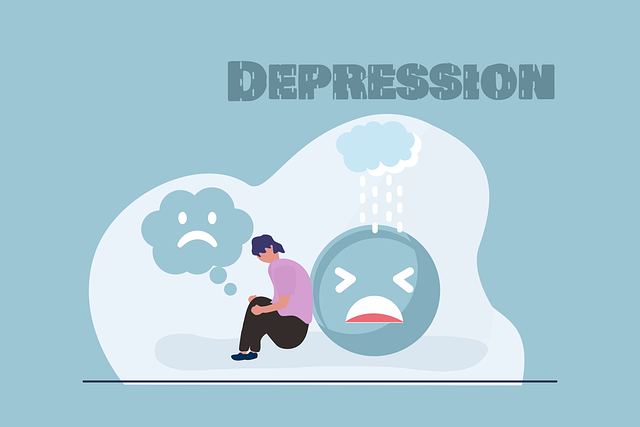Westminster Gender Identity Therapy (WGIT) tackles mental health stigma through tailored support for transgender and non-binary youth. They combine therapy, education, and community initiatives to create an inclusive environment that fosters resilience and mental wellness. Their multi-faceted approach includes peer support groups, public education, social skills training, and policy collaborations to reduce discrimination and improve access to resources. WGIT measures success through clear metrics like campaign reach and long-term mental health improvements, ensuring impactful advocacy for equitable mental health care.
Mental health advocacy initiatives play a pivotal role in creating a more inclusive society. This article explores the profound impact of stigma and discrimination, using the Westminster Gender Identity Therapy (WGIT) as a compelling case study. We delve into effective advocacy strategies, emphasize the power of community alliances, and discuss measuring success in mental health programs. By examining these aspects, we aim to illuminate paths towards more comprehensive support for diverse mental health needs.
- Understanding the Impact of Mental Health Stigma and Discrimination
- Westminster Gender Identity Therapy: A Case Study in Advocacy
- Strategies for Effective Mental Health Advocacy Initiatives
- Building Alliances: Collaborating with Community Organizations and Policy Makers
- Measuring Success and Scaling Up: Evaluating the Impact of Mental Health Advocacy Programs
Understanding the Impact of Mental Health Stigma and Discrimination

Mental health stigma and discrimination are significant barriers to individuals seeking support and treatment. These societal issues often stem from misconceptions and fear surrounding mental illness, leading to exclusion and marginalization. At Westminster Gender Identity Therapy, we recognize that understanding and challenging this stigma is a crucial step towards fostering an inclusive environment where everyone can prioritize their mental wellness.
The impact of such discrimination can be profound, deterring people from discussing their struggles openly. Many individuals facing mental health challenges may internalize societal norms, blaming themselves for their conditions. This self-stigma can exacerbate existing issues and hinder progress in therapy. Therefore, initiatives aimed at raising awareness, promoting positive thinking, and encouraging open conversations are essential. Through programs like Mental Wellness Journaling Exercise Guidance, we empower individuals to track their emotional journeys and cultivate a deeper understanding of their mental health. Additionally, risk management planning for mental health professionals can ensure they are equipped to handle sensitive situations with empathy and effectiveness, further reducing the effects of discrimination in therapeutic settings.
Westminster Gender Identity Therapy: A Case Study in Advocacy

Westminster Gender Identity Therapy (WGIT) is a remarkable example of mental health advocacy in action. Founded with a vision to support individuals navigating their gender identity, WGIT has pioneered innovative approaches within the field. Their comprehensive programs are meticulously designed to address the unique challenges faced by transgender and non-binary youth. Through a combination of therapy, support groups, and educational workshops, they foster an inclusive environment that promotes resilience building and mental wellness coaching.
This advocacy initiative goes beyond traditional therapy models, incorporating evidence-based practices tailored to the diverse needs of its community. WGIT’s success lies in their commitment to continuous development, staying at the forefront of mental health education programs design. By empowering young people with knowledge and skills for self-expression and well-being, they contribute significantly to improving mental health outcomes and fostering a more supportive society.
Strategies for Effective Mental Health Advocacy Initiatives

Effective mental health advocacy initiatives require a multi-faceted approach to ensure they reach and support diverse communities. One key strategy is Inner Strength Development. Encouraging individuals to cultivate resilience and self-advocacy skills empowers them to navigate their mental health journeys with confidence. This can involve facilitating peer support groups, where individuals share their experiences and offer encouragement, fostering a sense of belonging and community.
Additionally, Mental Health Education Programs Design plays a crucial role. Educating the public about mental health conditions, available resources, and dispelling myths can reduce stigma. These programs can be tailored to specific demographics, such as youth, families, or communities with unique challenges, like those seeking Westminster Gender Identity Therapy. Incorporating Social Skills Training within these initiatives equips individuals with communication tools to express their needs and build supportive relationships, enhancing overall mental well-being.
Building Alliances: Collaborating with Community Organizations and Policy Makers

Building alliances between mental health advocacy groups, community organizations, and policymakers is a pivotal strategy in creating sustainable change. By joining forces, these entities can amplify their impact and address complex mental health issues effectively. For instance, Westminster Gender Identity Therapy has successfully collaborated with local LGBTQ+ support networks and government bodies to develop inclusive Mental Health Education Programs Design tailored to the unique needs of gender diverse individuals. This collaborative approach ensures that policies and initiatives are not only well-informed but also culturally sensitive and community-driven.
Moreover, these partnerships enable the creation of powerful Public Awareness Campaigns Development that dispel myths and promote understanding. By engaging with various stakeholders, advocacy groups can foster a more supportive environment where emotional regulation becomes an accessible and prioritized aspect of overall well-being. Such alliances are crucial in advocating for policy changes, ensuring that mental health resources are equitably distributed and accessible to all segments of society.
Measuring Success and Scaling Up: Evaluating the Impact of Mental Health Advocacy Programs

Measuring the success of mental health advocacy initiatives is a crucial step in understanding their impact and effectiveness. Programs aimed at promoting mental wellness, such as Westminster Gender Identity Therapy, often focus on various outcomes, including increased awareness, improved access to resources, and enhanced support systems. To gauge success, it’s essential to establish clear metrics. These might include tracking the number of individuals reached through advocacy campaigns, measuring changes in attitudes and beliefs through surveys, or evaluating improvements in mental health outcomes over time.
One effective strategy is to encourage participants to engage in regular Mental Wellness Journaling Exercises, which can provide valuable insights into their emotional states and progress. This data can be analyzed to identify trends and tailor guidance for better Anxiety Relief. Additionally, Positive Thinking strategies, often integrated into advocacy programs, can lead to significant improvements in overall well-being. By combining qualitative and quantitative methods, organizations like Westminster Gender Identity Therapy can ensure their initiatives have a lasting impact and are scalable, enabling them to reach a broader audience and create positive change on a larger scale.
Mental health advocacy initiatives, such as those exemplified by Westminster Gender Identity Therapy, play a pivotal role in dismantling stigma and discrimination. By employing strategic alliances with community organizations and policymakers, these programs can effectively advocate for mental well-being on both individual and societal levels. Measuring success through evaluation ensures that efforts are scaled up, fostering a more inclusive and supportive environment for all, especially marginalized communities. Through collaboration and persistence, we can revolutionize mental health support, ensuring no one suffers in silence.










